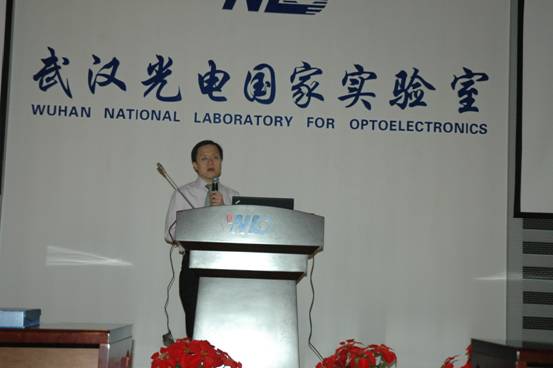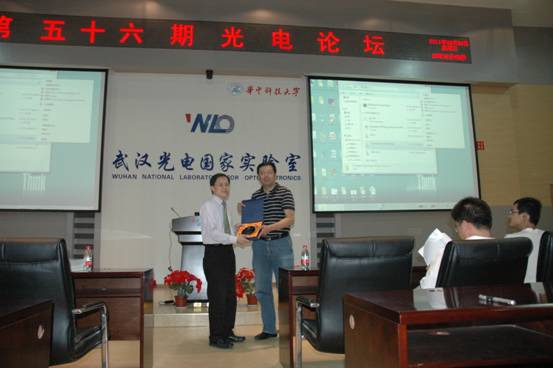Title:Application of multifunctional materials in optical devices
Speaker: Prof. Weiyang Huang
Time:Sept. 28. 2011.15:30-17:30PM
Venue: Room A101 At WNLO
Abstract:
Report Abstract: This talk is about recent progress in the development of some multifunctional organometallic complexes and polymers which can exhibit easily tunable luminescent and electronic properties. Considerable focus is placed on the evaluation of their suitability as emitters in OLED applications, optical power limiters for sensor protection, semiconductors in organometallic photovoltaic cells for solar power generation and polymer precursors to magnetic metal alloy nanoparticles. The approaches based on structural modification of the organic chromophore to achieve multiple-color phosphorescence emission and to tune the optical and photovoltaic properties of these organometallic materials will be presented.
Biography:
Wai-Yeung Wong received BSc (1992) and PhD (1995) degrees from the University of Hong Kong with the PhD work under the tutelage of Prof. Wing-Tak Wong. After a postdoctoral year with Prof. F. Albert Cotton in Texas A&M University in 1996, he worked for Profs. The Lord Jack Lewis (FRS) and Paul R. Raithby at the University of Cambridge in 1997. He joined the Hong Kong Baptist University as an Assistant Professor in 1998, rising through the academic ranks to Chair Professor in Chemistry in early 2011. Professor Wong is internationally renowned for his research in metallopolymers and metallo-organic molecules with energy functions and photofunctional properties. He has made profound contributions in the field of organometallic optoelectronics and photovoltaics. His research focuses on synthetic inorganic and organometallic chemistry and structural chemistry, with special emphasis on developing novel molecular functional materials and polymers containing late transition metal elements, setting a common goal especially towards advancing energy-related technologies.
He has a distinguished publication record of over 300 scientific articles to date. He becomes the first Chinese scientist to be presented with the Chemistry of the Transition Metals Award by the Royal Society of Chemistry in 2010. He is also the recipient of the First Class Prize in Natural Science Award from Ministry of Education of China in 2010 and the FACS Distinguished Young Chemist Award in 2011.

